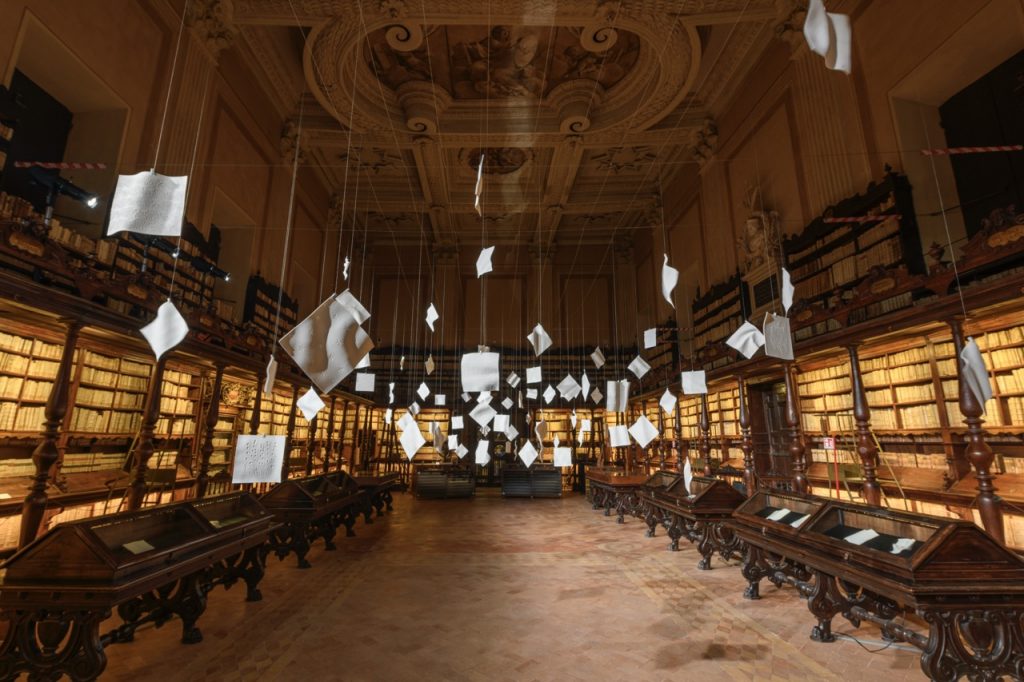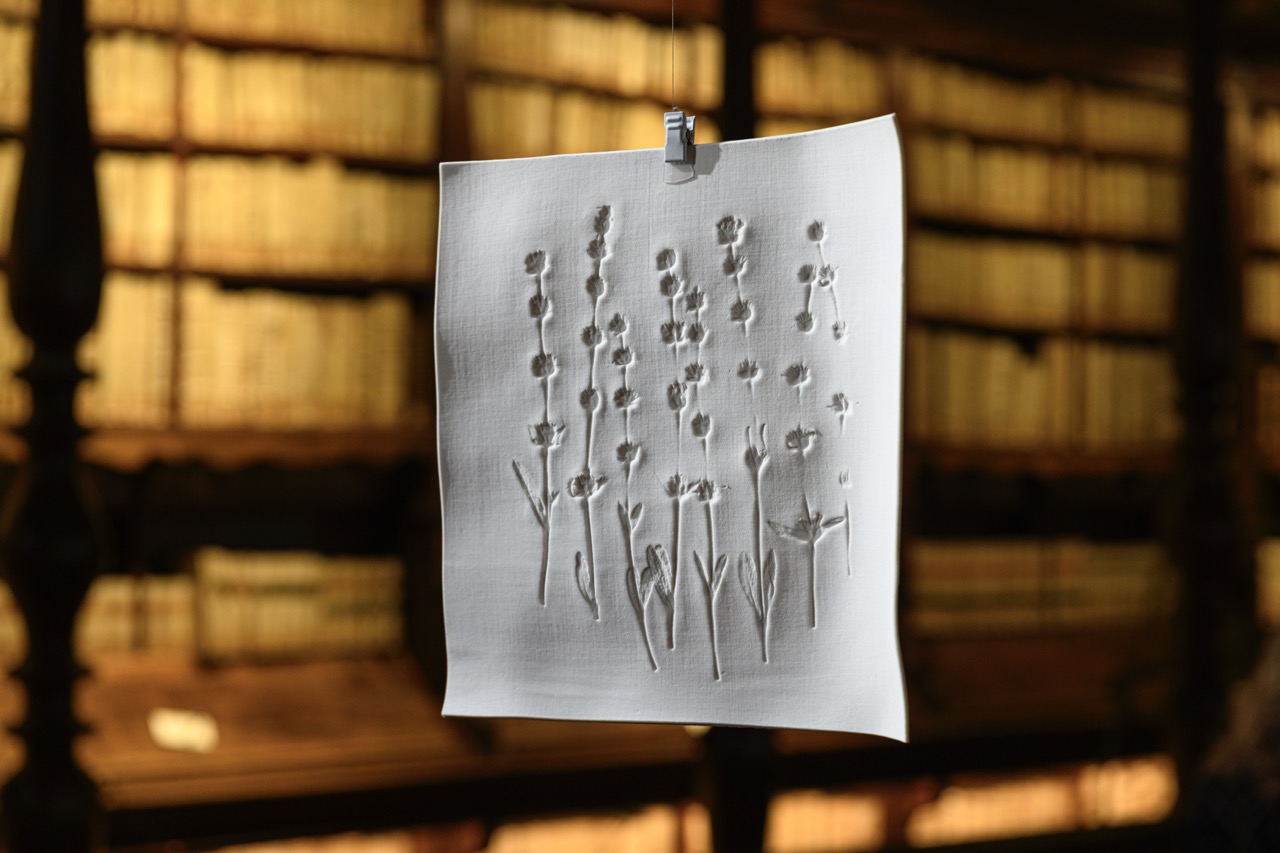IL FAZZOLETTO DI DESDEMONA | EMANUELA MASTRIA
Il fazzoletto di Desdemona is the result of a research project by Emanuela Mastria, originating from Shakespeare’s Othello, addressing the theme of femicide with a delicate and poetic formal language.
The artist chooses the handkerchief as a symbol, the same handkerchief with which Desdemona, the main female character of the tragedy, is accused of adultery. An object that initially symbolized love, given to the woman by Othello, but then used as a false proof of guilt. A device used to unjustly incriminate a woman who had chosen to follow her own desires, as well as her own freedom, challenging her father’s authority and thus considered dangerous and treacherous.
The installation consists of one hundred handkerchiefs. Identical in essence, made of porcelain, but different on the surface, in the details with which they are decorated, because each woman is unique in her own way, while the crime perpetrated stems from the same morbid and disgusting feeling of possession.
Each bears the initials of femicide victims, a tribute that is also a protest, silent but determined.
The handkerchiefs are made of white porcelain, a material as beautiful as it is fragile. Its physical properties allow for detailed craftsmanship down to the finest details, some so precise and elaborate that they appear to be real embroidered fabric.
The sculptural elements that make up the artwork are not placed on a pedestal, which could have provided them with support and stability, but are hung on a thread as a result of a conscious and targeted installation choice seeking a sense of floating lightness, thus telling the horror with delicacy.
In the visual image proposed by Mastria, this delicacy, lightness, harmony, and beauty are deceptive, like the relationships that seduce and control, with physical or psychological violence, the lives of women held hostage by domineering men.
Emanuela Mastria
Il fazzoletto di Desdemona, 2021
Porcelain, variable sizes
Installation view at Biblioteca Vallicelliana, Salone Borromini, Roma, curated by Michela Becchis
© Photo by Giorgio Benni

Emanuela Mastria, Il fazzoletto di Desdemona, 2021.
Porcelain, variable sizes. Installation view at Biblioteca Vallicelliana, Salone Borromini, Roma, curated by Michela Becchis. © Photo by Giorgio Benni.
06/07/24

